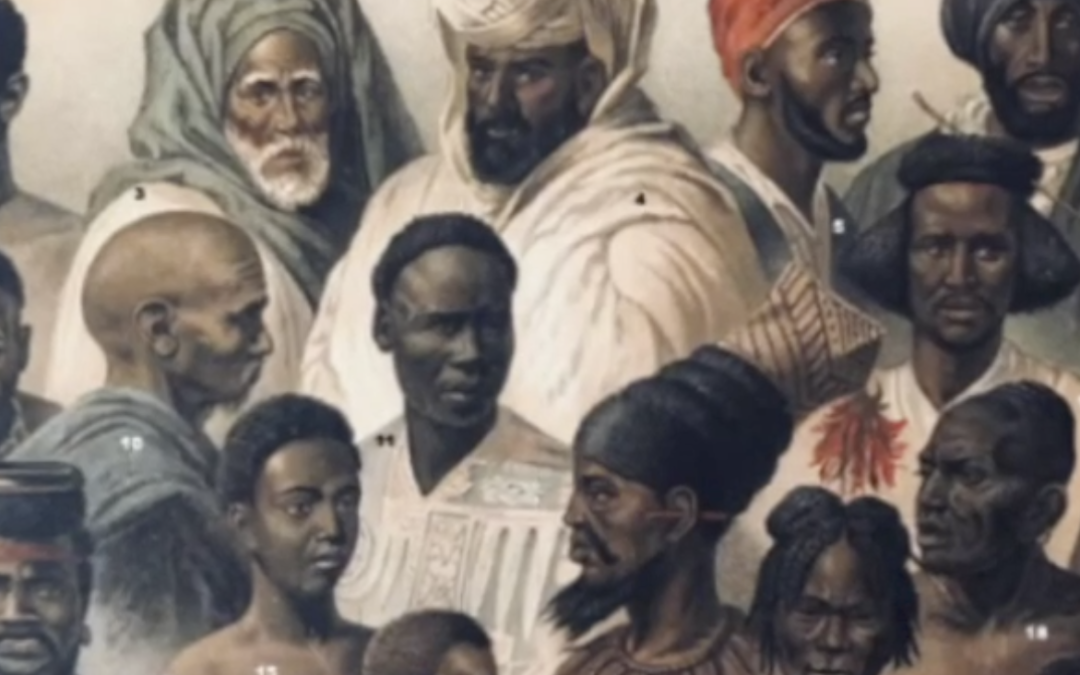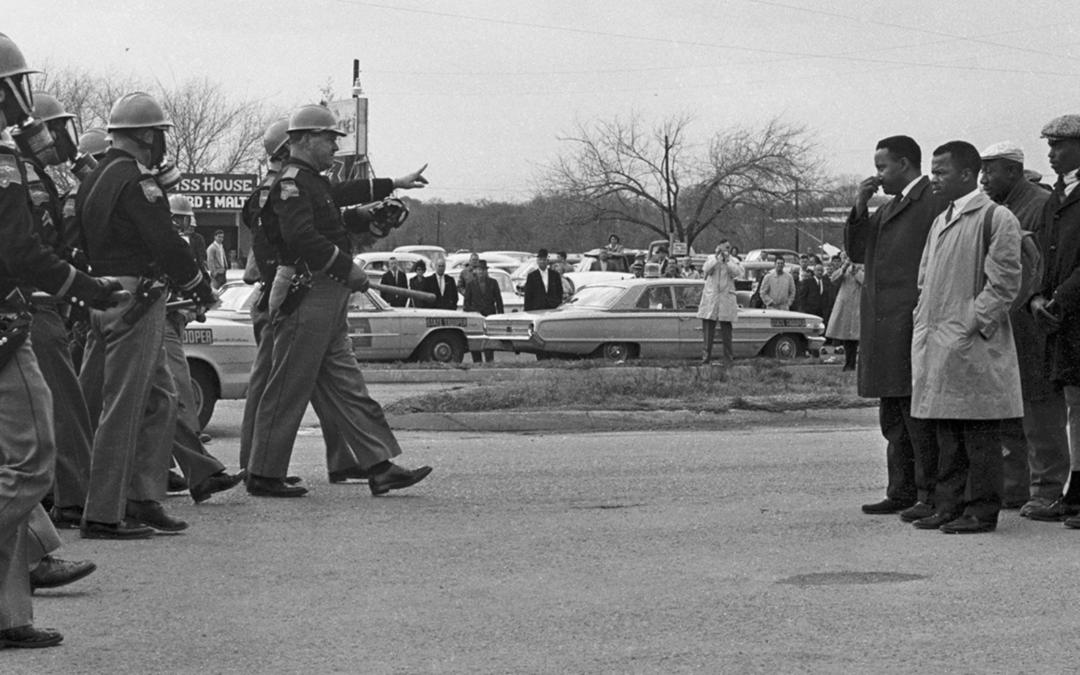
The Preaching Politician
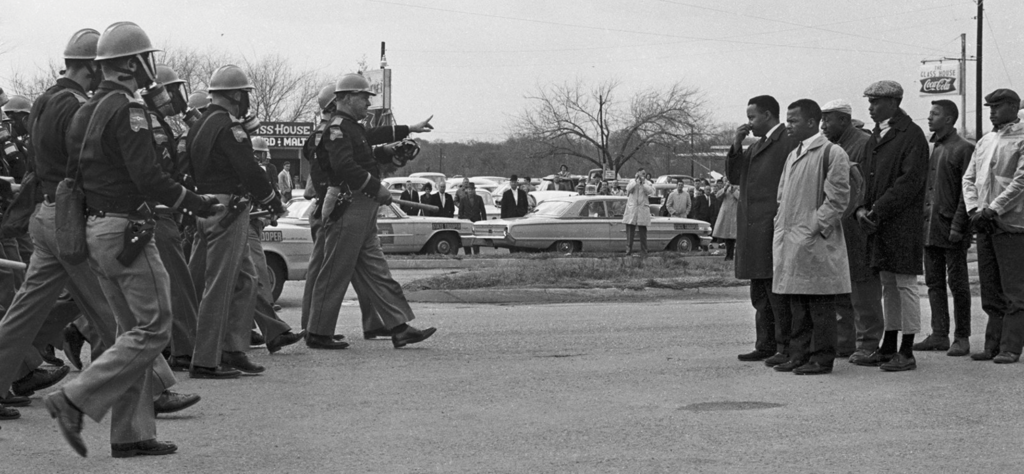
John Lewis, center right, with fellow protesters on Bloody Sunday, March 7, 1965, in “John Lewis: Good Trouble,” a Magnolia Pictures release. © Spider Martin. Photo courtesy of Magnolia Pictures
Before he was a Democratic congressman and before he was a civil rights activist, Rep. John Lewis preached to the chickens on his family’s farm as a young boy.
It’s a story staffers of Lewis can repeat by heart because they’ve heard it so many times.
“They would bow their heads; they would shake their heads,” he recounts in footage from an appearance at a Houston church in the new documentary “John Lewis: Good Trouble.”
“They never quite said ‘Amen,’ but they tended to listen to me much better than some of my colleagues on the other side listen to me today in the Congress.”
The documentary, presented through a partnership including Magnolia Pictures and CNN Films, traces the journey of Lewis, now 80, from the fields of Alabama to the halls of Congress. The film portrays how Lewis was shaped by his faith and guided by religious leaders such as the Rev. Martin Luther King Jr. and the Rev. James Lawson, two advocates for nonviolent civil rights action.
“Faith is an integral part of Mr. Lewis’ life but also part of his activism,” said Dawn Porter, director of the documentary, who filmed the congressman for more than a year starting shortly before the 2018 election.
Though he is a politician rather than a preacher per se, Lewis considers politics to be his calling, she said.
“He started preaching to chickens and now in many ways even though he’s a layperson he preaches to us,” she said of the man with a seminary degree as well as a bachelor’s degree in religion and philosophy. “That is part of the reason why people find it so motivating and so comforting when he speaks.”
The 96-minute documentary, which is to be released on demand and in select theaters on Friday (July 3), includes what has become Lewis’ mantra in its title.
“My philosophy is very simple,” he says in the film, which is also expected to air on CNN in late September. “When you see something that is not right, not fair, not just, say something. Do something. Get in trouble. Good trouble. Necessary trouble.”
The documentary’s producers have created a “Good Trouble Sunday” promotion for the movie, encouraging houses of worship to host a digital screening starting this Sunday, for which they can keep a portion of ticket sales.
Faith leaders on a mid-June conference call promoting the documentary expressed appreciation for Lewis, who was diagnosed with cancer late last year, and his long service as a role model.
The Rev. Jamal Harrison Bryant, senior pastor of New Birth Missionary Baptist Church outside Atlanta, recalled seeking advice from Lewis in the 1990s, when as the NAACP’s youth director Bryant received pushback for suggesting the civil rights organization reach out to the hip-hop generation.
“He said to me: ‘Jamal, change is never politically correct,’” Bryant recalled. “‘If everybody is in agreement, it’s not that radical.”
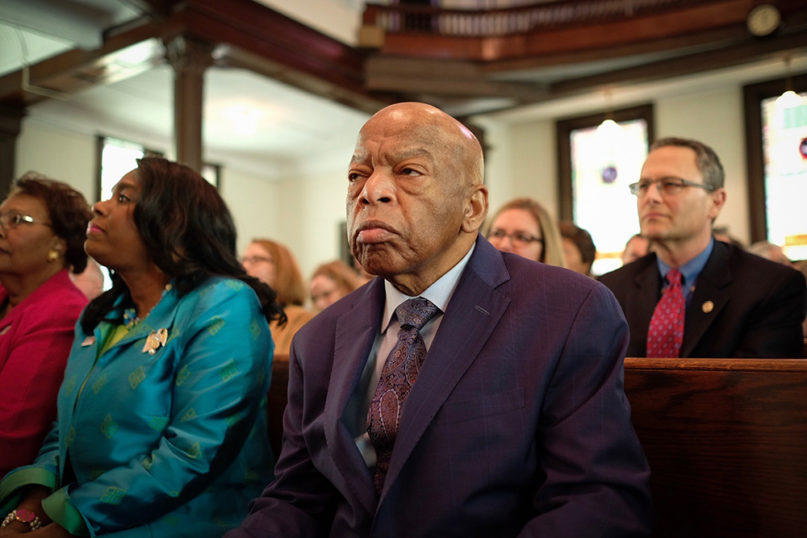
John Lewis in “John Lewis: Good Trouble,” a Magnolia Pictures release. © Ben Arnon. Photo courtesy of Magnolia Pictures
In the documentary, Lewis, a member of Atlanta’s historic Ebenezer Baptist Church, recalled his last meal in downtown Washington just before embarking on a trip as a Freedom Rider seeking equal access to accommodations for Black Southerners.
“Growing up in rural Alabama, I never had Chinese food before,” he recalled. “But someone that evening said, ‘You should eat well because this might be like the Last Supper.’”
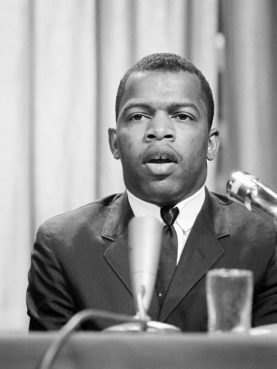
American civil rights activist John Lewis on April 16, 1964. Photo by Marion S. Trikosko/LOC/Creative Commons
Porter said those comments showed how Lewis and other young civil rights activists did not take their work lightly as they prepared for rides on segregated buses or sit-ins at segregated lunch counters.
“You’ll see in the movie that Rev. Jim Lawson, who was coaching and guiding the students, had them rehearse,” she said of Lewis and his fellow activists. “And I do think he decided that life under a segregated system was not the life that he wanted to live.”
Archival footage — some of which the congressman says he’d never seen before — reviews landmark, as well as lesser-known, moments in Lewis’ history. He was the youngest speaker at the 1963 March on Washington for Jobs and Freedom. On his first attempt on “Bloody Sunday” to cross the Edmund Pettus Bridge in 1965, he was beaten by Alabama state troopers and thought he would die as he protested for voting rights.
The film’s crew followed him as he supported fellow Democrats in the recent election and traveled with a bipartisan group of politicians and faith leaders on the annual pilgrimage to Alabama with the Faith and Politics Institute.
“Congressman Lewis has conveyed to all of us over the course of his lifetime that (the) fundamental right to vote is a foundational right,” said Joan Mooney, CEO of the institute, on the recent conference call. “So more than the transactional act of voting, Congressman Lewis talks about its sacredness, and voter participation in a democracy is the active expression of the values of all human beings.”
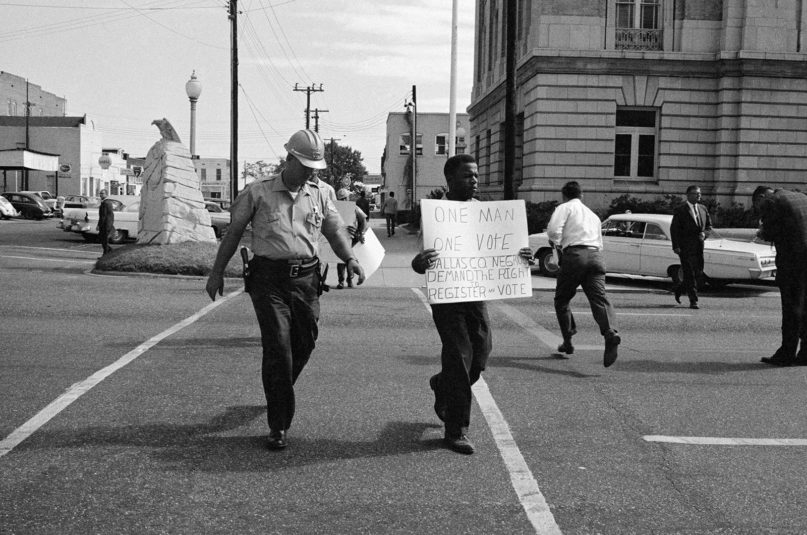
John Lewis is arrested on Oct. 7, 1964, in Selma, Alabama, during a Student Nonviolent Coordinating Committee-organized “Freedom Day,” an attempt to get residents registered to vote. © Danny Lyon/Magnum Photos. Photo courtesy of Magnolia Pictures.

